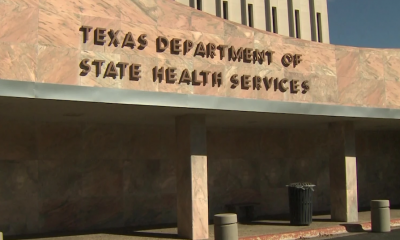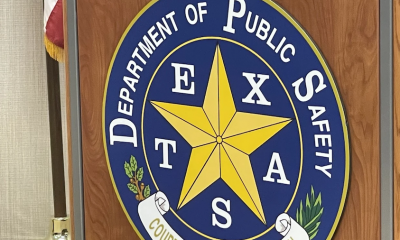The District Attorney’s office, Legal Aid of North Texas and the Collin County chapter of the NAACP are working together with lawyers from the Collin County Bar Association, the Plano Bar Association, and the Collin County Criminal Defense Lawyers Association, who have volunteered to give their time during the initiative, which ends on April 30.
Anyone interested in seeing if they are eligible for expunction (also known as expungement) has until April 30 to fill out a screening survey. From there, the pro bono legal teams will review the cases for eligibility and work with the district attorney’s office to get those cases into the court to have the records expunged or sealed.
The service is free from start to finish, as long as the screening survey is received by the deadline.
The issue of clearing your name in public records can be daunting, particularly if you don’t know you need to until you’re denied, for example, a job because of what the potential employer found on a background check. The problem is compounded for people denied government assistance or housing because of issues on their criminal record, creating a snowball effect of homelessness, poverty, and often, more arrests and incarceration because of outstanding fines.
The process can also be expensive, incurring anywhere from $1,000 to $2,500 in legal fees.
“This really is a poor person’s dilemma, because they don’t generally have the money to hire an attorney to go and get it expunged, so it’s a vicious circle,” said Kamisha Dumas, a staff attorney with Legal Aid of North Texas working on the Collin County project. “This initiative is a free attorney to go in and help you with this issue.”
While Collin County is one of the fastest-growing and wealthiest counties in Texas — the median household income was $96,900 in 2019, according to the U.S. Census Bureau — there are plenty in the community who don’t have the resources to hire an attorney to clear their records, Dumas said.
The district attorney’s initiative was launched on March 31. By mid-April more than 100 applications had been filed, a sign that the assistance was greatly needed in the community, Dumas said.
This is the first time Collin County has held an expunction initiative, but it comes at a time when similar expungement fairs or programs are picking up steam across the country for those with limited resources to try to clear their names.
Procedures for expunction or expungement vary by state and county, said Allan Courtney, who, with his wife Nina, founded the Papillon Foundation a decade ago. The nonprofit website accumulates links to forms and instructions for expungement procedures and sealing of adult and juvenile criminal records in all 50 States, the District of Columbia, Tribal Courts and American Territories.
The foundation was created to assist “veterans, victims of human trafficking, and indigent ex-offenders overcome long-term social and economic hardships by providing them with free online tools and resources to clean up their criminal records,” according to its website.
Some states’ expungement processes are easy and straightforward. Others require a court hearing in some cases, a victim can show up and contest a request for expungement. Alaska is exceptionally difficult with a very limited number of circumstances in which expungement is possible.
Collin County’s process does not require the applicant to appear in court, but Texas’ expungement processes in general tend to require a lot of documentation that can be challenging to comprehend for many people, let alone those who have been stuck in the criminal justice system, Courtney said.
“You think of the typical person who’s been cycling through the criminal justice system a few times, usually, they have a hard time with the process. Many are living on the street because they can’t get public housing because of the restrictions due to their records,” Courtney said. “It generally requires a lawyer to get through the system.”
While expungement fairs such as Collin County’s are becoming more frequent across the country, “there’s not enough of them,” Courtney said.
“There are all these economic costs when someone walks out of jail or prison, there’s no job waiting for them,” Courtney said. “When you arrest someone and throw them in prison, you’re affecting the wife, the kids, the ripple effects are compounded”
Currently, there are no expungement laws affecting federal crimes, despite bipartisan support for such legislation in recent years.
Collin County’s initiative coincides with President Joe Biden’s proclamation that April is “Second Chance Month,” to recognize the challenges of more than 600,000 U.S. citizens who re-enter their communities from state or federal prisons each year. The White House proclamation proposed rethinking the criminal justice system, from “whom we send to prison and for how long; how people are treated while incarcerated; how prepared they are to reenter society once they have served their time; and the racial inequities that lead to the disproportionate number of incarcerated Black and Brown people. “
Expunging certain criminal records should be part of that rethinking, the March 31 White House statement said.
“A person’s conviction history should not unfairly exclude them from employment, occupational licenses, access to credit, public benefits, or the right to vote,” the statement said.
The Collin County NAACP will discuss the Expunction Initiative with the VyKim Lee, the assistant district attorney, during its April branch meeting on Tuesday, April 20 at 7 p.m. It’s free to register for the virtual meeting via the chapter’s website.
The branch is hoping to make this year’s initiative a yearly event, said June Jenkins, the president of the Collin County branch of the NAACP.










